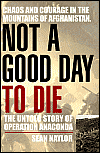Virginia Postrel, writing in Reason:
When customers enter the Ralphs supermarket near UCLA, they see a sign announcing how many different fruits and vegetables the produce department has on hand: “724 produce varieties available today,” it says, including 93 organic selections.
Sixty dozen varieties is a mind-boggling number. And that’s just in the produce department. Over in the cheese section, this pretty run-of-the-mill supermarket offers 14 types of feta alone. Not so long ago, finding feta of any type required a trip to a specialty shop.
During the last couple of decades, the American economy has undergone a variety revolution. Instead of simply offering mass-market goods, businesses of all sorts increasingly compete to give consumers more personalized products, more varied experiences, and more choice.
Average Americans order nonfat decaf iced vanilla lattes at Starbucks and choose from 1,500 drawer pulls at The Great Indoors. Amazon gives every town a bookstore with 2 million titles, while Netflix promises 35,000 different movies on DVD. Choice is everywhere, liberating to some but to others a new source of stress. “Stand in the corner of the toothpaste aisle with your eyes wide open and–I swear–it will make you dizzy,” writes design critic Karrie Jacobs. Maybe the sign in Ralphs is not an enticement but a warning.
